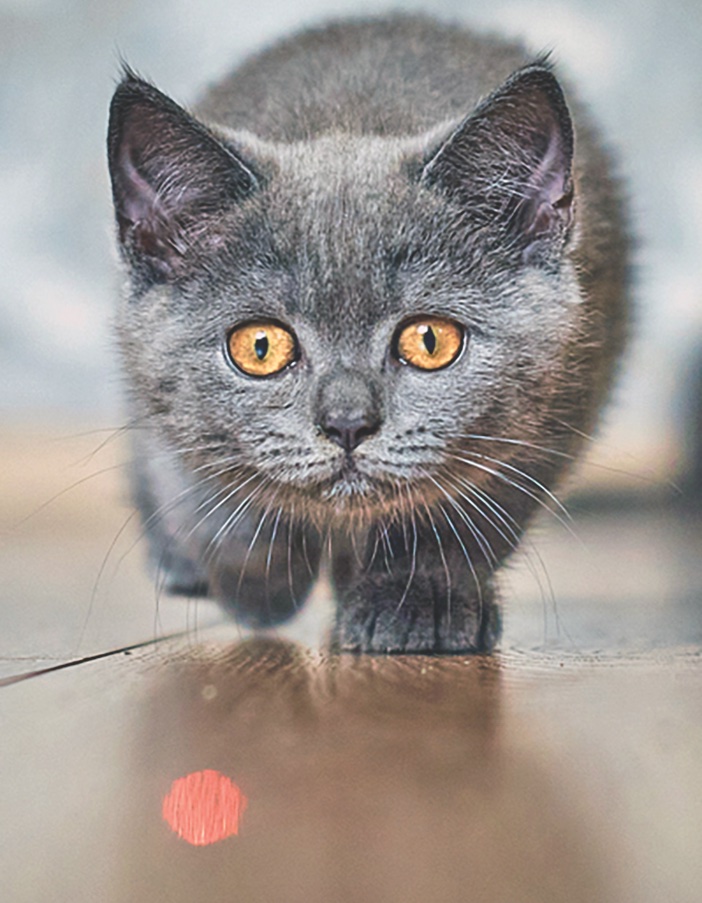Some cat lovers swear by lasers as a great way to tire their kitties out and have some fun, while others avoid them at all costs for fear of creating an injury or behavioral disorder. As with most things in life, the truth lies somewhere in between.
“A lot of cats enjoy playing with elusive laser lights,” says Pamela J. Perry, DVM, PhD, behavior resident at Cornell University’s College of Veterinary Medicine. “There is debate, however, on whether they are a safe way to entertain kitties.”
The Controversy
The drama over laser lights and cats stems from a real concern. “One study showed a correlation between play with laser pointers and occurrence of abnormal repetitive behaviors in cats,” says Dr. Perry. In the survey, cats who frequently chased laser lights were more likely to become obsessed with any moving lights and shadows, or to fixate on specific toys. The researchers called these “abnormal repetitive behaviors.”
Obviously, we don’t want our cats to develop abnormal repetitive behaviors that might interfere with how they go about their lives. However, it is important to note that this study used an owner survey and was not done under controlled conditions.
Cats could also potentially hurt themselves if they blindly followed the darting laser light into a dangerous situation, such as down stairs, into a stack of boxes, or even through a glass door. In addition, shining a laser directly into the eye could damage the retina and lead to vision impairment.
Safe Play
Done in moderation and with some simple safety practices, laser play can still be a fun game for you and your cat.
“It is important to never point the light directly at the cat’s face to avoid eye injury,” says Dr. Perry. “The light also should not be directed in such a fashion that may result in injury from the cat jumping or falling.”
You can limit the risk of behavioral issues by only playing once in a while, and letting your cat “win” at the end of each session. “I also recommend limiting playtime to avoid getting the cat overly excited or aroused, and pointing the light at a “real” toy or hidden treat or piece of food so that the cat has something tangible—and rewarding—to capture,” says Dr. Perry.
Directing the laser pointer at a real toy or treat at the end of the session gives your cat a clear ending to the hunt. Otherwise, it seems like their prey has just vanished into thin air! This frustration and confusion could be why some cats become fixated on lights and shadows—they may think the rogue point of light is still out there and may become constantly on the alert to catch it.
Know When to Quit
If your cat enjoys chasing laser pointers, this is a fun game you can indulge in moderation. Limit sessions to once a week or a couple times a month, and end the game when your cat starts to get tired or if she seems too worked up. While most cats will do just fine with these parameters, laser play isn’t appropriate for all cats. “If a kitty seems to get too aroused or frustrated, or begins to persistently search for the laser, then it should be avoided,” says Dr. Perry.



